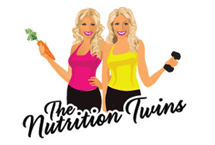As seen on:
![]()
Written by The Nutrition Twins
As registered dietitians, we’ve had an influx of clients inquiring about fermented foods. They’re curious about all of them—from kombucha, kefir, and kimchi to miso and sauerkraut—they want to know if they’re worth all of the hype. Originally, it was only “raw diet” followers who were interested in fermented foods, but a number of popular books and articles praising the foods and their probiotic health benefits have created a lot of buzz in the mainstream.
Here’s our fermented food low-down:
From a health perspective, fermented foods provide the friendly bacteria, also known as probiotics that your body needs in order to crowd out the harmful bacteria that naturally exist in your digestive tract. Probiotics may improve your digestive and immune health– goodbye bad bacteria, certain digestive woes and accompanying diarrhea. Plus, choose fermented foods and you’ll get more of certain vitamins and minerals than from the same foods that haven’t been fermented. Thanks to the probiotics that “pre-digest” your food for you, fermented foods also help you absorb more nutrients. For example, if you’re eating fermented cabbage, also known as sauerkraut (when you add Russian, Polish or Yiddish seasonings) or kimchi (when you add Korean seasonings), the probiotics in the cabbage are hard at work breaking down the plant cell walls so you can absorb more Vitamin C from the cabbage to boost your immunity while improving your skin. Thank you fermented cabbage!
There are a lot of fermented foods out there—and you may eat them without even realizing. Tempeh, kimchi, pickled fruits and veggies, fermented cheeses, buttermilk, sour cream, soy sauce, cider, vinegar, yogurt and bread, and even beer and wine (but it’s not a reason to start drinking them willy-nilly) are all fermented. However, when it comes to fermented foods, our clients just want to know if they should eat them and whether teas like kombucha really stimulate the immune system, prevent cancer, and improve liver function like many advocates claim.
Our take:
Although, there’s no scientific evidence to support that fermented foods have miraculous health and curing powers, the probiotics they contain do benefit health. That being said, we don’t tell our clients to force themselves to eat fermented foods if they don’t like them. Personally, we enjoy eating yogurt and it’s an easy way to get some probiotics. And many of our clients go for kefir. While yogurt is fermented with only lactobacillus bacteria, kefir is fermented with this and also with yeasts so it has additional probiotics. Although we like the flavored kefir, we prefer not to get all of the extra calories from the flavoring.
As for store bought kombucha, just be careful—many store-bought products are high in sugar (about 8 grams in an eight ounce serving) and contain about 60 calories a bottle. We typically suggest avoiding beverages that contain calories to help prevent excess calorie consumption. Another drawback: in order to keep the probiotic benefits, the kombucha tea must not be pasteurized; this means it increases the risk of contamination.
Bottom line: If the majority of your diet is healthy and you prefer to get your probiotics from a supplement, go right ahead.
For more like this you may like…
For a Get Healthy Guide out The Nutrition Twins Veggie Cure!


